"Multi-ethnic gangs set checkpoint on fire"
KFOR Commander Erhard Buhler has accused multi-ethnic gangs, radical groups and organized crime of the latest escalation of violence in north Kosovo.
Friday, 19.08.2011.
10:51

KFOR Commander Erhard Buhler has accused multi-ethnic gangs, radical groups and organized crime of the latest escalation of violence in north Kosovo. He said that KFOR was trying to create an environment in which police and especially EULEX police could act, conduct investigations and arrest those who had caused violence in the previous weeks. "Multi-ethnic gangs set checkpoint on fire" The German general told Deutsche Welle that one should look for the reasons for the violence at the Jarinje administrative checkpoint in attempts to prevent illegal “actions”. “These are gangs of young people who were armed with explosives, Molotov cocktails, who set the Jarinje border crossing on fire. These gangs did not consist of Kosovo Serbs only, these are multi-ethnic gangs that have been earning money by smuggling fuel from Serbia to north Kosovo in the past years and they are not interested in changing the chaos and lawlessness. There was a lot of money there,” Buhler stressed. When asked whether it is possible to withdraw international forces from Kosovo in near future, he said that there was a withdrawal plan but that there was no date and that it would depend on the situation in the field. “One of the conditions for reduction in the number of forces is improvement of security situation in the north. It’s hard to say how long it will take and it depends on politics and progress in negotiations that will begin in September,” the KFOR commander pointed out. He added that the Belgrade-Pristina dialogue had a chance in this situation. “I believe that the dialogue has a chance if both sides show good will to implement the agreement which has been reached with our mediation. I do not want to speculate about the outcome but I believe that it is in both sides’ political interest to reach compromising solutions quickly,” Buhler stressed. Erhard Buhler KFOR controls unofficial crossings Buhler stated on Friday that KFOR had set up checkpoints on all eight alternative routes which represent unofficial crossings to north Kosovo. He explained that checkpoints had been set up in the last several days, that vehicles were being searched for weapons and that KFOR would have to reach an agreement with the Serbian Army (VS) and UNMIK on the way these crossings would be controlled in the future. “Since smuggling through the Jarinje and Brnjak crossings is disabled now, we will not allow them to use alternative routes for it,” he said. Buhler said that an attempt of special police unit ROSU to take over the administrative crossings last month was a “unilateral move”, pointing out that he was informed about the operation after it had already started. “But I don’t want to say that it was wrong move,” he added. The KFOR commander stated that about 6,300 international troops had been deployed in Kosovo. According to him, there are enough troops to face all challenges in the upcoming weeks. “Criminals obstruct police work” in north Kosovo The KFOR commander said Thursday that certain criminal structures in the Kosovo north were preventing the Kosovo police from doing their job properly. He added, however, that it was most important that the crisis had been prevented. “Crime in the north is strong and the citizens know that. The police in the north has been intimidated by some criminal structures, and hence its members cannot do their job properly,” Buhler told Zvecan-based TV Most. He stressed it was most important that Belgrade, Pristina, KFOR and the people of Kosovo had prevented the crisis in northern Kosovo from developing. “There are those who want to cause harm to me and (Belgrade negotiating team head) Borislav Stefanovic and do not believe in the agreements reached,” the KFOR commander explained. Summarizing the results achieved on the expiry of his mandate, he said his greatest success had been the process of reconciliation between communities in Kosovo in the postwar period.
"Multi-ethnic gangs set checkpoint on fire"
The German general told Deutsche Welle that one should look for the reasons for the violence at the Jarinje administrative checkpoint in attempts to prevent illegal “actions”.“These are gangs of young people who were armed with explosives, Molotov cocktails, who set the Jarinje border crossing on fire. These gangs did not consist of Kosovo Serbs only, these are multi-ethnic gangs that have been earning money by smuggling fuel from Serbia to north Kosovo in the past years and they are not interested in changing the chaos and lawlessness. There was a lot of money there,” Buhler stressed.
When asked whether it is possible to withdraw international forces from Kosovo in near future, he said that there was a withdrawal plan but that there was no date and that it would depend on the situation in the field.
“One of the conditions for reduction in the number of forces is improvement of security situation in the north. It’s hard to say how long it will take and it depends on politics and progress in negotiations that will begin in September,” the KFOR commander pointed out.
He added that the Belgrade-Priština dialogue had a chance in this situation.
“I believe that the dialogue has a chance if both sides show good will to implement the agreement which has been reached with our mediation. I do not want to speculate about the outcome but I believe that it is in both sides’ political interest to reach compromising solutions quickly,” Buhler stressed.
KFOR controls unofficial crossings
Buhler stated on Friday that KFOR had set up checkpoints on all eight alternative routes which represent unofficial crossings to north Kosovo.He explained that checkpoints had been set up in the last several days, that vehicles were being searched for weapons and that KFOR would have to reach an agreement with the Serbian Army (VS) and UNMIK on the way these crossings would be controlled in the future.
“Since smuggling through the Jarinje and Brnjak crossings is disabled now, we will not allow them to use alternative routes for it,” he said.
Buhler said that an attempt of special police unit ROSU to take over the administrative crossings last month was a “unilateral move”, pointing out that he was informed about the operation after it had already started.
“But I don’t want to say that it was wrong move,” he added.
The KFOR commander stated that about 6,300 international troops had been deployed in Kosovo. According to him, there are enough troops to face all challenges in the upcoming weeks.
“Criminals obstruct police work” in north Kosovo
The KFOR commander said Thursday that certain criminal structures in the Kosovo north were preventing the Kosovo police from doing their job properly.He added, however, that it was most important that the crisis had been prevented.
“Crime in the north is strong and the citizens know that. The police in the north has been intimidated by some criminal structures, and hence its members cannot do their job properly,” Buhler told Zvečan-based TV Most.
He stressed it was most important that Belgrade, Priština, KFOR and the people of Kosovo had prevented the crisis in northern Kosovo from developing.
“There are those who want to cause harm to me and (Belgrade negotiating team head) Borislav Stefanović and do not believe in the agreements reached,” the KFOR commander explained.
Summarizing the results achieved on the expiry of his mandate, he said his greatest success had been the process of reconciliation between communities in Kosovo in the postwar period.










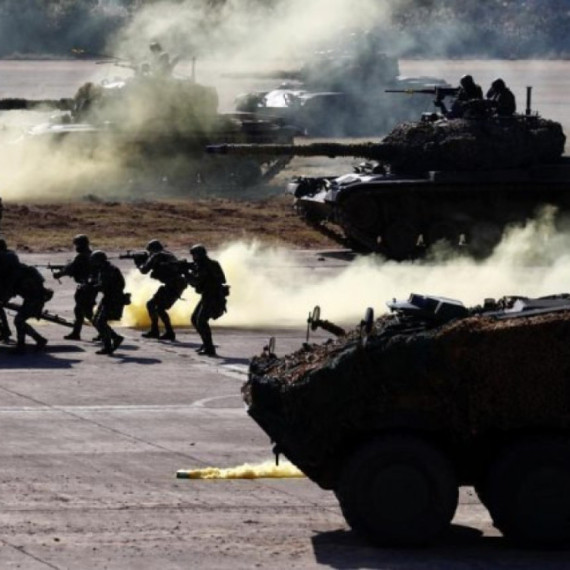

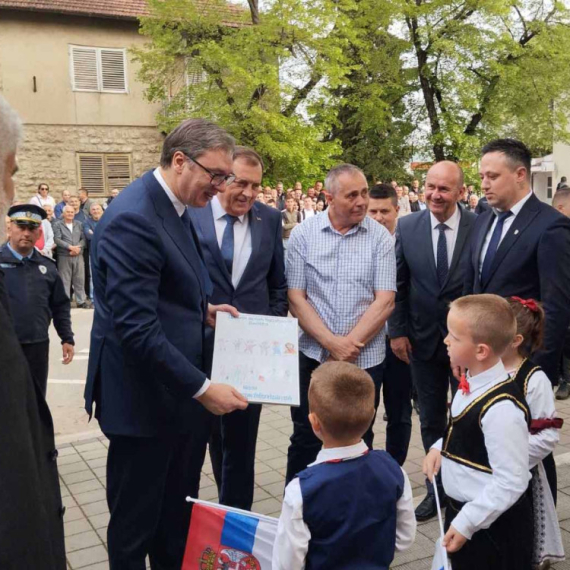






















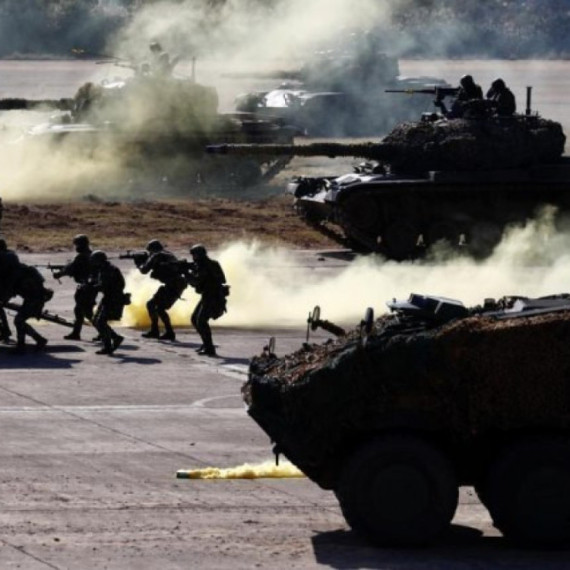
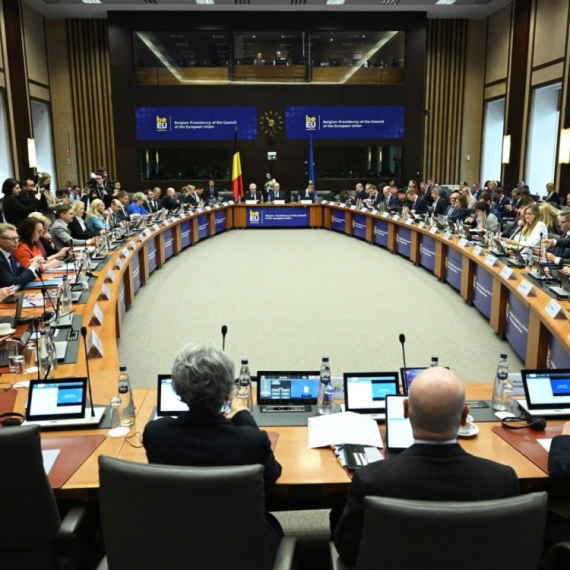
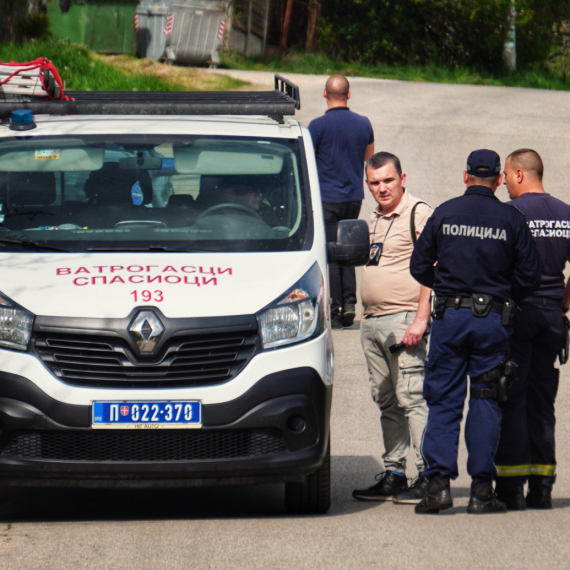
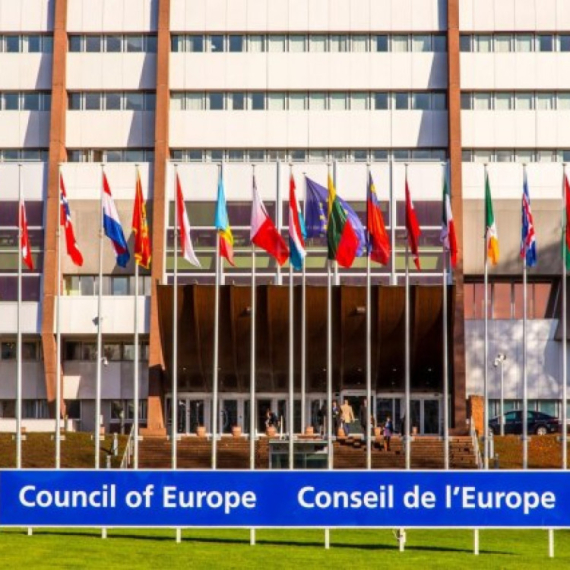





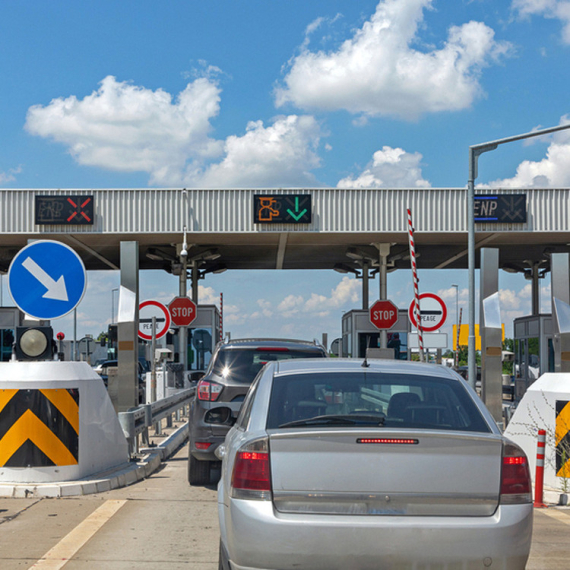





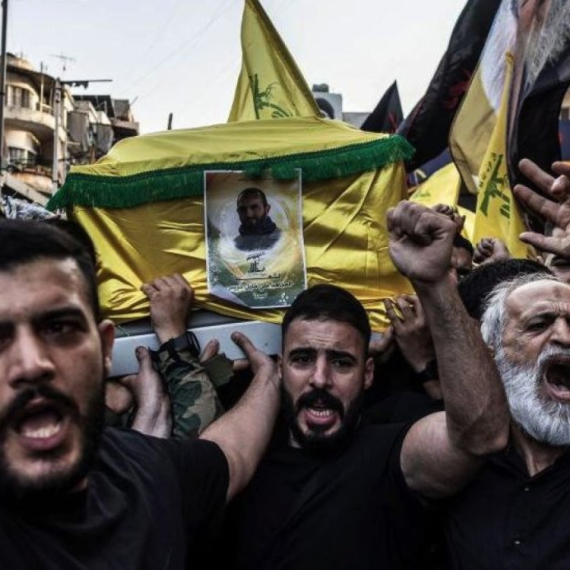



Komentari 46
Pogledaj komentare